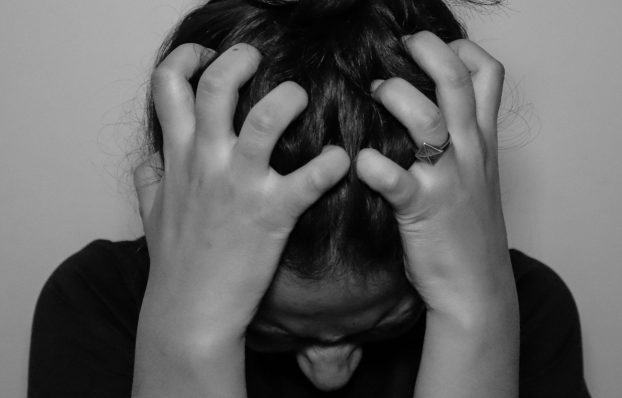Therapy for self-esteem, tackling self-criticism, shame, a better relationship with yourself
Low self-esteem, shame, a negative self-image and a critical internal voice are hallmarks of having an unhelpful relationship with our self. A critical inner voice -and perfectionism - can lead us to feel inadequate and ashamed of ourselves or aspects of ourselves (eg our feelings, how we look etc).
This way of seeing and treating ourselves may have been internalised from relationships in our early years. Perhaps we did not experience ourselves (or aspects of ourselves) as being consistently wanted, loved and respected by others. If a hostile relationship with ourselves is the result of neglect or abuse, there may be more self-destructive behaviours such as addiction, self-harm or issues with eating.
Therapy helps us to identify these often unconscious, habitual and unsupportive ways of relating to ourselves so that they become more conscious and can be thought about, questioned and challenged. More importantly, however, therapy provides an opportunity to build a healthy, supportive relationship within which a more accurate and wholesome self-view can be fostered.
See yourself in a different light

'It isn't normal to know what we want. It is a rare and difficult psychological achievement' Abraham Maslow

Therapy for a better life, fulfilment, greater intimacy, and more clarity about your needs and desires
Some people choose to do therapy less because they are suffering emotionally and more because they would like to explore and gain more clarity around certain areas in their life. Perhaps certain situations or feelings are challenging.
Perhaps you would like help to work through an event from the past which you have not fully addressed. There may be difficulties with family members or friends. Or there may be a sense that your relationships with others could be more satisfying.
Maybe you would like to improve the physical or emotional intimacy with your partner. Perhaps you have issues around self-confidence and your relationship with yourself could be more accepting and supportive.
Therapy can help you to explore, work through and gain insights into your life enabling you to build healthier relationships and a more creative, satisfying life.
Therapy for depression, withdrawal, despair
Depression is depressing. It flattens our affect, saps our energy and dissolves our motivation to improve our situation making us feel more depressed and further from upliftment. Depressed people can be highly self-critical, self-loathing and perceive themselves as unlovable leading to feelings of shame and self-imposed isolation from others. We may feel helpless and hopeless and a vicious circle of withdrawal, rejection, anger and despair can prove very challenging to break out of.
Most people will experience depression at some stage in their life but if depression is a daily, debilitating and longer-term issue, it is important to seek help.
Sometimes, psychotherapy alone may provide a way to work through the unresolved issues that have led to a depressed state. There are, however, many kinds of depression, and depression may be complicated by other factors. Sometimes there may be a biological component to depression. In some cases, a multi-pronged approach to tackling depression can be the most helpful. This might include psychotherapy, medication, exercise etc.
'I was always looking outside myself for strength and confidence but it comes from within. It is there all the time' Anna Freud

'Out of your vulnerabilities will come your strength' Sigmund Freud

Therapy for anxiety, fear, panic attacks, catastrophising, perfectionism
When feelings of anxiety, unease, worry or fear are excessive, persistent and debilitating, it is important to seek professional help. High levels of anxiety impact on our relationships, self-esteem, peace of mind and physical health. Associated symptoms include agitation, an inability to concentrate, exhaustion, tension, high blood pressure, irritability, disrupted sleeping patterns etc.
For some, anxiety intensifies towards feelings of panic and ‘panic attacks’ can be terrifying and make us feel out of control. Attempts to manage the anxiety such as avoiding situations (e.g. social events), obsessive thinking patterns, dissociating or addiction may seem to push the difficulty aside but the anxiety may well increase overall.
The underlying issue is likely to be a difficulty with processing these feelings. Therapy creates an opportunity for you to learn to accept, endure, think about and process these feelings safely and gradually without being overwhelmed by them. Ideally, over time, the cycle of anxiety creating more anxiety gets derailed. Your resilience towards your feelings increases and, at the same time, your feelings become less extreme.
Therapy for relationships, intimacy, setting boundaries, managing conflict
When our bonds with parents/caregivers or siblings have been complicated, confusing or unhelpful, it can impact on our ability to form healthy relationships with friends, colleagues and romantic partners. Common challenges my clients bring to therapy are difficulties with trusting, being intimate, and being emotionally open with others., Constructively managing conflict, identifying and getting their needs met, setting boundaries etc.
Therapy involves the painful work of recognising these difficulties with relating to others and to ourselves. And to gradually understand, and come to terms with, the impact this has had, and is having, on our lives. At the same time, the therapist is a reliable, dependable and supportive presence who offers you the opportunity to build a trusting, emotionally connected relationship with him. A place where you can learn to be close but, at the same time, maintain your autonomy, where you can feel supported but, at times, be challenged. Somewhere where you are encouraged to identify and value your needs, set boundaries and engage constructively with disagreement and difference.
'There's nothing more intimate in life than simply being understood' Brad Meltzer

'The curious paradox is that when I accept myself just as I am, then I can change' Carl Rogers

Therapy for managing emotions which are intense, distressing or overwhelming
Babies are unable to regulate their emotions and so they need an adult to both tune in and understand their feelings and also help them to feel better. Gradually, over many years, we learn to be aware of and process our own feelings.
Without this ability to ‘metabolise’ emotions, they:
- become more and more intense and overwhelming as the feeling (e.g. anxiety, anger etc.) generates more and more of the same feelings without any processing and thinking to inhibit escalation and moderate the experience.
- become defended against (e.g. buried, displaced etc.) causing distress and confusion which complicates relationships and can be a cause for depression and anxiety.
- cause physical symptoms such as tension, migraines, digestive issues etc.
It is only within a caring, emotionally close relationship with a capable person that we are able to develop this capacity. If it has not been learnt in our early life, it is possible to develop these skills in therapy. This involves gradually allowing feelings to come up, accepting, enduring and tuning into them, talking and thinking about them.
Therapy for LGBTQIA+ non binary, being and feeling ‘othered’, sexuality and gender questioning
Mental health issues including depression, suicide and substance misuse are much higher amongst the LGBTQIA+ community than in the general population.
It not easy to learn about, develop and embrace your sexuality, identity, relationships in an environment where cisgender is the only acceptable cultural template. It is then a Herculean task to work through, unpick and detoxify all of the painful experiences and messaging that LGBTQIA+ people have been exposed to since childhood.
And even then, it takes a huge amount of emotional processing to live in a hetero-normative and sometimes LGBTQIA+ phobic world without feeling inadequate, ashamed, fearful, despairing, depressed or even suicidal.
Prejudice ranges from subtle unconscious bias (e.g. not being chosen for a job), to a lack of acknowledgement (e.g. non-cis gender attraction not being celebrated or encouraged as a youngster) to experiencing disgust, vitriol and physical attacks from others.
Most of my LGBTQIA+ clients come to therapy to focus on difficulties which are not specifically LGBTQIA+ related but want to work with a therapist who is aware and supportive of these historical and ongoing challenges.
The privilege of a lifetime is to become who you truly are

To choose doubt as a philosophy of life is akin to choosing immobility as a means of transportation’ Yann Martel

Therapy for doubting your own thoughts and mind, obsessive thinking, drifting off into your own thoughts
When questioning your own thoughts, decisions, beliefs, feelings, memories, knowledge and experience is unrelenting, it can be paralysing and make us feel like we are going mad.
The inability to trust your own mind leads to circular thinking, anxiety, endless doubts, a disconnect from reality and difficulty with making decisions. Not trusting your feelings means that they are discounted and pushed down leaving you feeling ‘in your head’, lost and separated from your deeper self and your own wisdom.
You even may find yourself dissociating from reality and those you are with by disappearing into your own head for extended periods of time.
These patterns develop when there is emotional neglect or abuse in the early years of life. In order to build up faith in our own mind and thoughts, we first need caretakers who encourage and believe in our autonomy - our ability to work things out, make decisions and learn from them without being made to feel wrong or bad. To develop trust and confidence in our feelings we first need adults who value our feelings and show us that these are the source of self-knowledge and the best way to understand others.
Therapy for later life, retirement, loss, ill-health
Despite the emotional difficulties associated with getting older, this age group is less likely to access professional help for mental health concerns.
There are adjustments to make and losses to contend with associated with changes to our roles, identity, status and also with retirement. Loved ones move away or die and we may become more isolated, lonely and less mobile. Coming to terms with declining cognitive function and physical health and ultimately our own mortality are huge challenges if we are not to become anxious or depressed.
There may be past hurts and regrets or even trauma that have yet to be worked through. Perhaps there are issues with self-esteem or relationships that need to be addressed.
How do we make sense of life as an older person and the changes this brings. How do we connect with our past and our life stories? How do we feel about our self-image, later years and dying. Is there a place for spirituality, joy, playfulness and creativity? Can we find new ways to connect with others.
Is now the time to work through the past, find peace with the future and create meaning and purpose as an elder in the present?
'Nothing should be more expected than old age: nothing is more unforseen' Simone de Beauvoir

‘Grief is the price we pay for love’ Colin Murray Parkes

Therapy for loss, change and bereavement
Grief is a normal process. It is the thoughts and feelings we experience after a significant loss or change as we adjust to a living without the person or things we have lost. In the immediate aftermath of a loss, along with shock and numbness, there may be emotional turmoil leaving us feeling disorientated. Feelings of anger, guilt, loneliness and depression are common.
Although there are commonalities, grief is also a very individual experience. Maybe accepting your loss feels unsurmountable or is taking time. This might leave you feeling pressured to ‘move on’ or that you are asking too much of your support network. It may be that your relationship to the deceased was complex and there are things to work through. Perhaps managing the loss has been complicated by other losses or your own emotional needs.
When we feel unable to navigate the grieving process alone, the support of a therapist may be helpful. In therapy, you will have the space to make sense of your difficulties and gradually accept and integrate your painful loss.
These videos may be helpful:
Therapy for trauma, abuse, neglect, bullying
Trauma is an emotional response to one or more horrible, shocking and overwhelming events such as sexual, physical or emotional abuse, assault etc. Trauma can impact on our relationships causing difficulties with trust, boundaries and intimacy. It can affect our self-esteem, confidence and ability to regulate our emotions.
Avoidance (of people and situations), intrusive thoughts and feelings (flashbacks and nightmares) and hyperarousal (e.g. anger, hypervigilance) are useful and immediate responses to trauma.
If these symptoms persist, however, it is as if we are stuck in the trauma, replaying the images, and re-experiencing the emotions and physical sensations. This leads to a deterioration in our mental and physical health.
The best treatment for trauma depends on the individual, their symptoms and nature of the traumatic event(s). Many approaches are available and sometimes a combination of these can work best.
Therapy provides an opportunity to rebuild your emotional resources, and create a safe environment where gradually, over time, you can begin to process both what has happened and what keeps happening.
If you are able to work through what has happened, intrusive symptoms and the level of arousal gradually diminish reducing the need for avoidance. At this point the mind and body stop responding as if the danger was still present.
If you would like to discuss the best course of action, you are welcome to schedule a telephone call with me to discuss your needs.
‘It is so much safer not to feel, not to let the world touch me’ Sylvia Plath

'Anyone can become angry—that is easy. But to be angry with the right person, to the right degree, at the right time, for the right purpose, and in the right way - that is not easy' Aristotle

Therapy for anger,
(part 1): What is anger?
Anger typically arises when we feel unable to contain painful emotions. It is a reaction to feeling an excess of agonising feelings such as anxiety, stress, distress, pressure, fear, shame, jealousy etc.
Issues with anger can sometimes be linked to emotional injuries to our sense of self when we were very young such as through neglect, abuse or trauma. Years later, something such as being criticised or hurt can be ‘triggering’ causing extreme distress which then manifests as anger or rage.
Difficulties with anger could also be the result of growing up in a household where feelings were not processed (acknowledged, accepted, talked about etc.). Anger may have therefore been prohibited or inhibited. As a result anger is then feared and pushed down leading to angry outbursts. We may then experience others as hostile or threatening – the result of 'projecting’ our hidden anger into others. It can also lead to a feeling that everyone is against us – a paranoia where we see situations which aren’t there.
Anger and a loss of control may also be behind obsessive compulsive behaviours.
Therapy for anger,
(part 2): Managing anger
It is normal and unavoidable to feel anger and so we should avoid pushing it down. On the other hand, most expressions of anger – verbal and physical – are misplaced. They are usually not assertively and constructively conveying your feelings to the right person. They are ‘taken out’ on the wrong person, at the wrong time and in the wrong way. This ‘acting out’ is a way of attempting to release the tension and pain of feeling such as distress and anxiety and are experienced as unbearable.
The difficulty for people who struggle with anger is that they become triggered by past experiences which pushes their mind into 'fight/flight mode' and away from the rational thinking mind where emotions can be processed (thought about, regulated and soothed).
All of the behavioural strategies available to manage anger (e.g. breathing, dialogue, self-soothing etc.) are attempts to bring your mind back to the thinking/reflecting mode. These can be helpful if you are at the stage of being aware of your feeling-thought process while it is happening. Ultimately, however, the original source of your difficulty with these emotions needs to be understood and processed with the help of a professional.
‘How much more grievous are the consequences of anger than the causes of it’ Marcus Aurelius

You constantly question whether it is a real fear or the OCD. It’s like having two brains — one rational brain, one irrational - and they’re constantly fighting

Therapy for obsessive compulsive behaviour, intrusive/obsessive thoughts, OCD (part 1)
Obsessive compulsive behaviour is accompanied – or preceded - by intrusive/obsessive thoughts which are unsettling or taboo - perhaps sexual, violent or involving contamination. The behaviours are an attempt to neutralise the thoughts.
We often feel a sense of shame as we know these thoughts oppose what we consciously believe and want (e.g. dying of cancer or harming a family member).
We can also feel a sense of shame because we are fully aware that both the thoughts and the compulsions which follow are wholly irrational. Knowing that others do not have such thoughts and behaviours is frightening, infuriating and can make us feel as if we are not in control and going a bit mad. It is also isolating to not know others who have OCD and to feel unable to discuss what we go through with others who won’t understand it.
It is as if part of our brain and body becomes stuck in a fearful, anxious hypervigilant state desperately trying to protect our self from perceived emotional and physical threats with obsessive compulsive behaviours. We are in emotional, survival mode and unable to engage our thinking, learning, rational mind.
Therapy for obsessive compulsive behaviour, intrusive/obsessive thoughts, OCD (part 2): Treatment
Intrusive/obsessive thoughts are fueled by currently unknown and unexplored fears and anxieties. Obsessive compulsive behaviours are a ritualised, formulaic and unreflective response which prevents the feelings from freely manifesting. Maintaining the ritualised compulsions (checking, circular thoughts etc.) without treatment ensures that the habit continues and often it gets worse.
The only way out involves gradually facing – allowing, accepting, exploring and working through the feelings and thoughts. This can feel frightening and even unbearable and so a gradual approach within the context of strong, safe therapeutic relationship is best.
Once you are established in your therapy, you and your therapist can agree when and how to begin to gradually allowing more the thoughts by not resorting to the compulsive behaviour.
If you’re OCD is overwhelming you or your goal is solely focused on treating OCD, then CBT which includes ERP is currently thought to be the best approach (see ocduk.org). If you are looking to explore a range of difficulties in therapy and your OCD is not overpowering, then analytic therapy could be helpful. You are welcome to get in touch with me to discuss this further.
You can’t stop the thoughts (e.g. someone might break in) and you can’t resist the behaviours (repeatedly checking locks) even though you know it won’t stop the thoughts for long.

Booking and contact
Feel free to get in touch with me if you have any further questions.
Email: info@londontherapyhub.uk
Phone: 07549 352 977
Fees:
Weekly sessions last for 50 minutes and the fee is £85. The initial consultation lasts for up to 90 minutes and the fee is also £85.
Working hours:
Monday - Friday 9 am - 5 pm
©London Therapy Hub
powered by WebHealer
